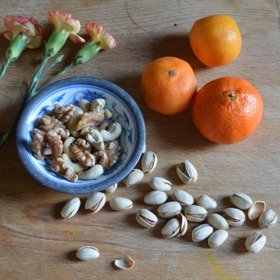
Our relationship with food is influenced by a number of factors. How we feel each day often has the greatest impact on our food choices and vice versa.
When we chat with clients about energy levels, many experience the ‘afternoon slump’. That 3-4 pm energy dip when suddenly concentration disappears into day-dreaming, patience seems to wane, memory escapes you and your eyes start drooping.
At this point, without really taking any notice, most of us reach for a cup of coffee or tea and biscuits or chocolate. And, after that initial energy boost most of us feel tired again.
Believe it or not, but this afternoon slump can be avoided altogether by changing the way you eat and what you choose to eat.
Before I jump straight to how you can smooth out those energy dips into sustained energy and alertness throughout the day, it’s important to recognise the patterns of eating that get us here. You wake up and draw on the body’s energy stores to get you until breakfast. Breakfast provides the fuel you need to get moving and out the door.
The morning is filled with meetings, emails, chores, appointments, baby classes, etc. and, without a snack, energy levels are falling. Lunchtime comes around, you suddenly  realise how hungry you are and eat again quickly before the next meeting /appointment or the baby wakes up. Energy levels are rapidly restored and the brain and body get going again.
realise how hungry you are and eat again quickly before the next meeting /appointment or the baby wakes up. Energy levels are rapidly restored and the brain and body get going again.
With a non-stop afternoon suddenly it’s 4pm and you feel tired. The body naturally tells you to get energy as quickly as you can, often in the form of caffeine or sugar, so the brain and body can get back to the tasks at hand. And this up and down cycle continues.
The key to avoid this cycle, is to give yourself sustained energy through the right food choices and frequency of eating, so that the ups and downs are less noticeable.
Below you’ll find some tips for avoiding that afternoon slump but please remember, a ‘healthy’ diet is a highly personalized thing. While these tips may help some, others may find there is more work to be done to overcome fatigue. Like with most change, overcoming habit is always a factor.
1. Always eat the wholegrain option as this provides a sustained energy supply.
2. Never wait until you’re desperately hungry to eat. Your cravings will naturally drive you to the sugary foods, which provide a quick burst of energy and then leave you fatigued shortly after.
3. Keep a supply of low sugar snacks nearby – nuts, fruit, vegetables, protein balls – so if you suddenly realise you’re hungry, you won’t be tempted to reach for the cake.
4. Stay hydrated with water & herbal teas – even the slightest decrease in hydration can leave you feeling tired and lacking in concentration.
5. Limit caffeinated drinks – these not only dehydrate you but also create spikes in energy and can then leave you feeling even more tired.
6. Always eat when drinking caffeine. This includes that first cup of coffee or tea in the morning. Caffeine alone creates a quick surge of energy but will leave you hungry and tired shortly after.
7. Take time to sit and eat slowly away from the computer, phone, tablet and television. This not only improves digestion, but you’ll also find you are more aware of your hunger and satiation cues, so you can recognise hunger before you’re desperate and fullness before you overeat.
8. Eat a source of plant (nuts, seeds, beans, legumes) or animal (fish, poultry, eggs, meat) protein at every meal & snack. This helps the digestive system provide energy over longer periods.
9. SLEEP! – Although not diet centered, the most important factor is getting enough sleep so that you feel recharged when you wake, allowing your body to use its energy efficiently throughout the day.



